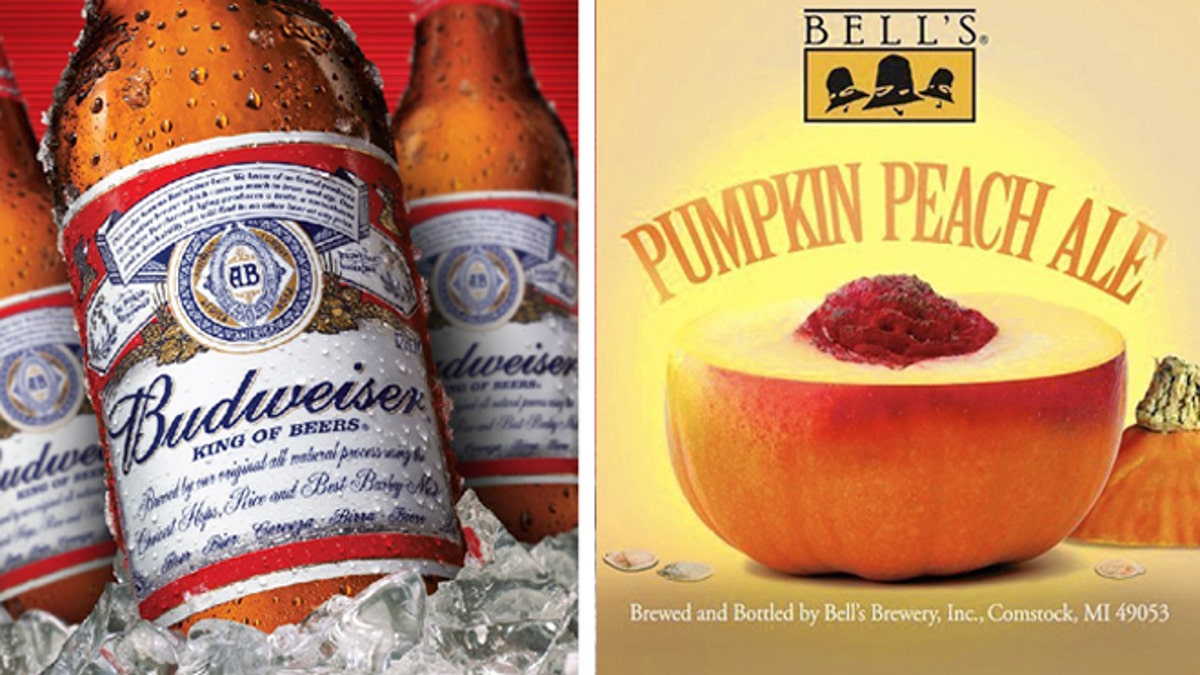
After Budweiser debuted its controversial Super Bowl ad knocking craft brewers and their fans, small breweries responded with heartfelt video statements and new beers, mocking the King. Now months later, it looks like the little guy is still putting up one heck of a good-natured fight.
While some experts thought it would be wise for Budweiser to back to down—especially as parent company Anheuser Busch continues to snap up small breweries it dissed in its own ad—the King of Beers has stood by the spot unapologetically. But instead of responding directly to David, this beer Goliath may be working to change its image altogether.
Budweiser has now found an unlikely champion in modern-day food icon David Chang. Last year, the Momofuku superstar chef proclaimed his love for flavorless, watery beers like Budweiser, while simultaneously denouncing “fancy beer” culture in a GQ op-ed.
Many foodies were surprised to hear their culinary god decry the hipster's elixir of life. Chang’s rationale for eschewing hopped-up, flavored beers in lieu of the Tecates and Millers of the world is very much in line with his anti-snobbery culinary outlook.
“It pairs really well with food. All food,” Chang concludes towards the end of his op-ed. “Cheap beer is, no joke, the champagne of beers. And cheap beer and spicy food go together like nothing else.”
To clarify, Chang doesn’t think craft beers taste bad at all—he recognizes they can be quite delicious. And so does Budweiser. AB-InBev has acquired four major craft breweries since 2011.
And now they’ve acquired Chang. Sort of.
The celebrity chef is partnering with Budweiser, to host a nationwide contest that kicked off earlier this month to find the best amateur burger chef. Winners will get a big prize of $100,000 and a spot on Esquire Network’s new show “United States of Burgers.”
“Bud and burgers, it’s a magical combination,” the chef declares hocking a familiar brown beer bottle in one hand and an oversized burger in the other.
Does this mean the King of Beers finally acknowledges its own product is indeed “cheap, watery swill”-- as Chang proclaimed-- by joining forces with his camp? Probably not, rather it is appealing to the foodie elites that worship Chang.
“I see this an attempt to bridge the gap with so-called foodies,” Eric Penicka, a research associate with Euromonitor Intenrational, explained to FoxNews.com. “It seems a little suspect coming on the heels of the Super Bowl ad. Chang definitely appeals to a different type of consumer than the average Bud Light drinker.”
Penicka doesn’t think the contest will translate into better sales for the iconic beer brand and notes that the controversial Super Bowl ad was actually a good thing for the company.
“From a business perspective, that spot was a pretty smart idea—Budweiser needs to speak to its core fanbase and let them know they won’t be changing their recipe any time soon,” Penicka says. According to Euromonitor research, craft beer skews to younger drinkers --the so-called millennials--while older generations prefer the Bud family.
Even if David Chang can't help shift Budweiser’s image from some watery afterthought to necessary food companion in the minds of foodies, craft breweries are still pouncing on any opportunity to continue the beer fight.
Since the Super Bowl ad debuted, small brewers around the country have released their own version of a “pumpkin peach ale”—a nod to the commercial’s tagline: “Let them sip their pumpkin peach ale. We'll be brewing some golden suds."
Bell's Brewery of Kalamazoo, Michigan recently released a Pumpkin Peach Ale.
Smokehouse Brewing Co in Columbus, Ohio has one called "Fussy Sipper Pumpkin Peach Ale," and Griffin Claw Brewing Company in Birmingham, Michigan, has their own "Beechwood-Aged Pumpkin Peach Ale."
"It's a (screw) you to Anheuser-Busch because they sent us a (screw) you,” Bell’s founder Larry Bell admitted to the Chicago Tribune. “We have a little bit of a smirk on our face with this. You think we make fussy beer? Well, we do.”
While some small brewers thought the ad was harmless fun, many saw it as a personal attack on their livelihoods—as well as highly hypocritical for a company that is trying to cater to more diversified beer-drinkers.
But pandering to both sides, says Panicka, would be a big mistake. The researcher says he believes that AB-InBev needs to separate their brands to keep consumers buying into the “carefully constructed craft beer” image of company-owned beers like Goose Island and Blue Moon.
“It might be hypocritical, but it could actually hurt their smaller brands by calling attention to the fact they [AB-InBev] own these so-called “niche” beers,” Panicka says. Budweiser distancing themselves from the whole craft market is a smart move.
The Super Bowl controversy may be following Budweiser for a long time --which may not be a bad thing.
“But at the end of the day, when it comes to craft brewers, they don’t have much to lose by keeping the conversation,” Panicka says.
